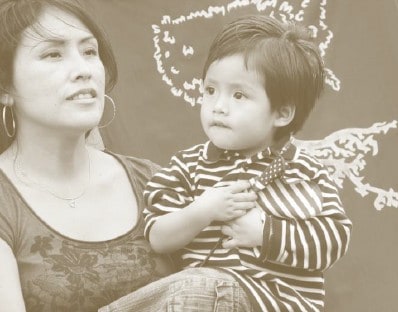As the Trump administration moves slowly toward reuniting refugee parents and children, we are hearing reunification stories from the front lines. Accounts from families, journalists, activists, political leaders and clinicians tell of the enormous distress that refugee children and parents have endured.
A Honduran father reunited with his 3-year-old son after three months said: “He just kept looking at me, crying. He wouldn’t talk to me.” The boy won’t let anyone except his father hold him. It has been difficult to gain his trust as it was before. His son felt that he was abandoned.
A mother reunited with her two sons, ages 7 and 11, after a month said the boys don’t leave her side. They keep asking their mother to hold them for fear that immigration officers will take them away again.
Versions of these stories will be enacted by countless refugee families who fell under the “zero tolerance” and “family separation” policies that ripped children from their parents at the border. As more reports come out, we will truly know the scale of damage wrought by a policy as inexplicable as it was heartless. These families are facing a mental health crisis.
Not only young children will show the ill effects of separation and detention. Children of all ages have suffered in different ways depending on age, health and the conditions of separation and detention. But younger children will not grasp why this happened to them as well as older children. Their young minds cannot comprehend immigration policy and enforcement. They’ll ask, “What did I do?” or “Why did my mommy or daddy leave me?”
It is self-centered thinking; it’s what young children do. All children, younger and older, will show behavioral and emotional reactions: bed-wetting, nightmares and night terrors, clinging, mistrust, nervousness, defiance, opposition, depression, somatic complaints, separation anxiety, fears of new people and places — just about every known symptom of post-traumatic stress, depression and disrupted attachments.
The damage inflicted by the policy and practice of separating families under such chaotic and punitive circumstances will take a long time to heal and be treated. Now that the damage is done, we bear the responsibility of fixing the damaged family bonds and the psychological traumas of children and parents. As two experienced mental health researchers and practitioners, we know how these children and parents will appear in our schools and clinics. Fortunately, competent contemporary mental health practices can help repair these broken lives.
The process starts with screening children and parents to identify those most harmed and most in need. Screening helps answer these questions: Who are the ones most troubled? Who are the ones showing the most disturbance? Which ones had a health or mental health problem now exacerbated by separation? Good clinical screening with valid instruments and skilled clinical observations will certainly help us make these distinctions.
Screening should be followed by a full assessment, in which multiple clinicians collect and evaluate more details to make sure nothing is missed. Together, members of this team will recommend the treatment. How do we repair the trauma of the child? How do we treat the “odd” or regressed behavior the child is showing, like the cases above? What is the best treatment for the parents’ mental health reactions?
These are the next steps that our nation must take to undo the damage that has been done. There’s much that state leaders and Congress can do. States can work with nonprofits that can provide the mental health services that will initiate this healing process. But they must be cautious: The same organizations that imprisoned children and parents cannot screen, assess and provide treatment. These families need people and services they can trust and that won’t hurt them. Congress can move swiftly to release funds so that they reach every town, every social service agency in our country.
None of this can be done or done well until families are together and children securely in their parents’ arms. The children, like the 3-year-old boy, deserve our attention and care. We owe it to them, and we owe it now. We must earn their trust.
Octavio Martinez, Jr. is a psychiatrist and executive director of the Hogg Foundation for Mental Health at The University of Texas at Austin. Luis H. Zayas is a clinical social worker and dean of the Steve Hicks School of Social Work at The University of Texas at Austin.
This opinion piece was produced for Texas Perspectives and represents the views of the author, not of The University of Texas at Austin or the Steve Hicks School of Social Work. A version appeared in the Houston Chronicle.


